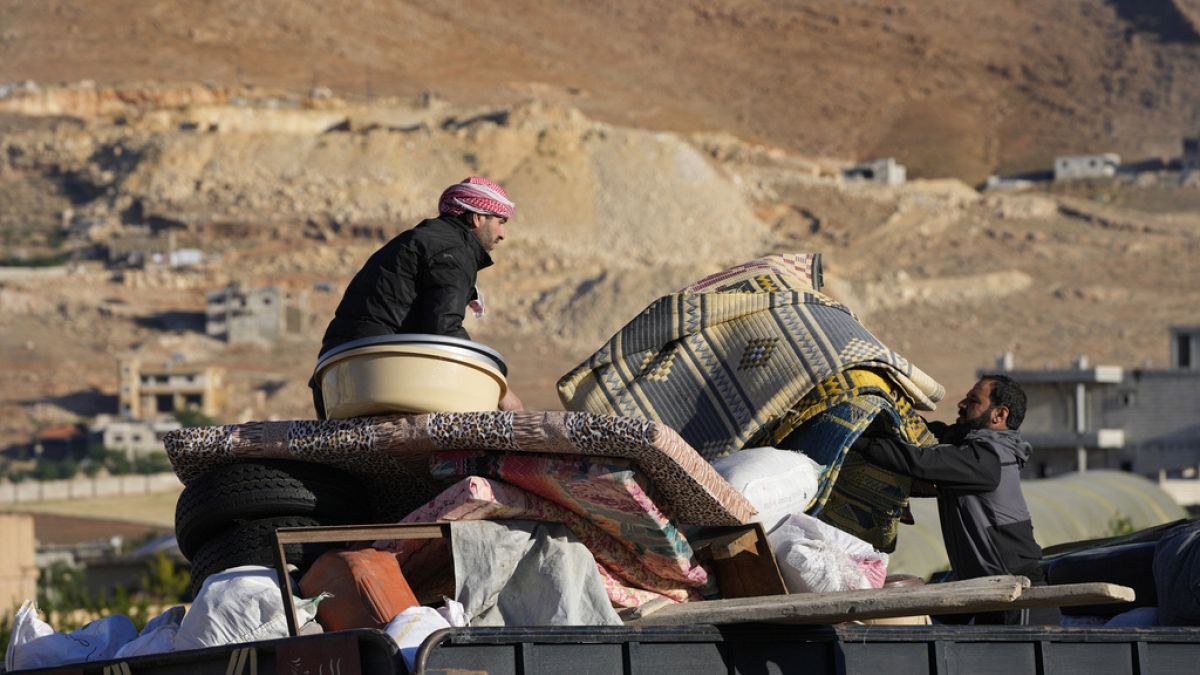The United Nations refugee agency has expressed concerns about the growing humanitarian crisis in the Middle East, particularly in light of the conflict between Israel, Iran, Lebanon, and Hamas. The escalating crisis has prompted fears of a new wave of asylum seekers trying to reach Europe. According to the UNHCR representative in Lebanon, the easiest option for those fleeing Israel’s advance would be to go to another location within Lebanon or cross the border to Syria. However, many are considering Europe as a potential destination despite the associated risks and high costs involved.
With Israel launching a ground incursion in Lebanon and displacing one million people, the situation in the region is becoming increasingly dire. Lebanon is already home to 1.5 million Syrian refugees, adding to the strain on the country’s resources. While Syria is facing its own humanitarian crisis, many Syrians and Lebanese citizens are seeking refuge there due to the easier entry formalities and shorter queue times at the border. Aid agencies in Lebanon are struggling to provide basic services and infrastructure due to limited financial resources and are calling for increased support from the international community.
The UNHCR has launched an appeal for $425 million to address the urgent humanitarian needs in the region. Despite some contributions from organizations such as the European Commission, more funding is required to ensure that essential services are provided to those affected by the conflict. The European Union has called for a ceasefire in both Gaza and Lebanon, but more diplomatic pressure is needed to address the ongoing crisis. Aid agencies are preparing for the possibility of a prolonged conflict and the challenges that the winter season may bring in terms of providing shelter, food, and water to those in need.
The Israeli military’s ground operation in Lebanon is focused on destroying infrastructure used by Hezbollah to attack Israeli citizens. However, Iran’s missile strike on Israel has further escalated the conflict, raising concerns about the potential for the crisis to drag on. Aid agencies are bracing for the challenges of the coming winter, which could compound the difficulties in providing assistance to those affected by the conflict. Ensuring access to essential services, including mental health care, will be a priority for aid agencies working in the region as they prepare for the longer-term consequences of the crisis.
In conclusion, the humanitarian crisis in the Middle East, exacerbated by the conflict between Israel, Iran, Lebanon, and Hamas, is putting immense strain on the resources of countries like Lebanon and Syria. The UNHCR and other aid agencies are calling for increased funding and support from the international community to address the urgent needs of those affected by the conflict. As the crisis continues to escalate, the coming winter could bring additional challenges, particularly in providing shelter and essential services to those displaced by the conflict. Efforts to secure a ceasefire and diplomatic solutions are crucial to preventing a larger humanitarian catastrophe in the region.











